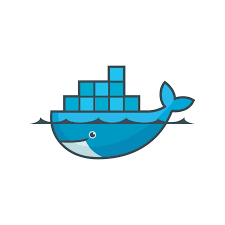Mastering docker(Instructor led training)

About Course
Docker is an open platform for developing, shipping, and running applications. Docker enables you to separate your applications from your infrastructure so you can deliver software quickly. With Docker, you can manage your infrastructure in the same ways you manage your applications. By taking advantage of Docker’s methodologies for shipping, testing, and deploying code, you can significantly reduce the delay between writing code and running it in production.
Why should I learn docker? well here are few reasons:-
Containerization: Docker allows developers to create containers that can run consistently across different environments. This enables them to easily deploy applications in a containerized environment, ensuring consistency in performance and functionality. This also means that you can just pass the docker image to your QA or any other team member to run without them worrying about JAR files or any other dependency.
Portability: Docker makes it easy to move applications between different environments, such as from a developer’s laptop to a production server, without having to worry about compatibility issues. It’s always easy to pass a single Docker image then multiple exe files or JAR files.
Scalability: Docker enables developers to quickly and easily scale their applications horizontally or vertically as needed, without requiring significant changes to the underlying infrastructure. Kubernetes can create as many pods with your application if you give a Docker image to it. Docker and K8 goes hand in hand.
Efficiency: Docker allows developers to work with smaller and more focused containers, reducing the overhead associated with traditional virtual machines. It certainly makes deployment easy from developer’s perspective and if you have proper pipeline you can deploy a new Docker container every time you build master branch.
Speed: Docker can significantly speed up the development process by enabling developers to quickly create and deploy containers, without having to worry about setting up complex infrastructure. I have not seen much improvement with the speed though but deployment and installation certification become easier.
Collaboration: Docker makes it easier for developers to collaborate on projects by providing a standardized environment that can be easily shared and replicated.
Security: Docker provides a range of security features that help ensure the safety and integrity of applications running in containers.
Flexibility: Docker can be used with a wide range of programming languages, frameworks, and tools, making it a versatile solution for developers across different industries.
Community: Docker has a large and active community of developers, making it easy to find resources, get help, and stay up to date with the latest developments.
Career Growth: As more organizations adopt containerization and microservices architectures, developers with Docker skills are in high demand, making it a valuable skillset to have in today’s job market.